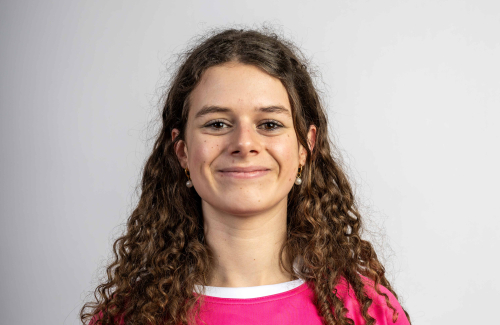More Pembroke news
From PCBC to Paralympic Coxswain: In Conversation with Erin Kennedy (2011, History and English)
NEWS |
“It’s all sort of been a bit of an accident,” Erin Kennedy laughs over a Zoom call squeezed in between training for the upcoming Paralympic Games. It’s been thirteen years since Erin set foot in Pembroke for the first time to start reading for a degree in History and English. Today, she has found half an hour to talk to us about her career as a coxswain as she prepares to compete for Great Britain in the Mixed Coxed Four event. Quite the accident indeed.
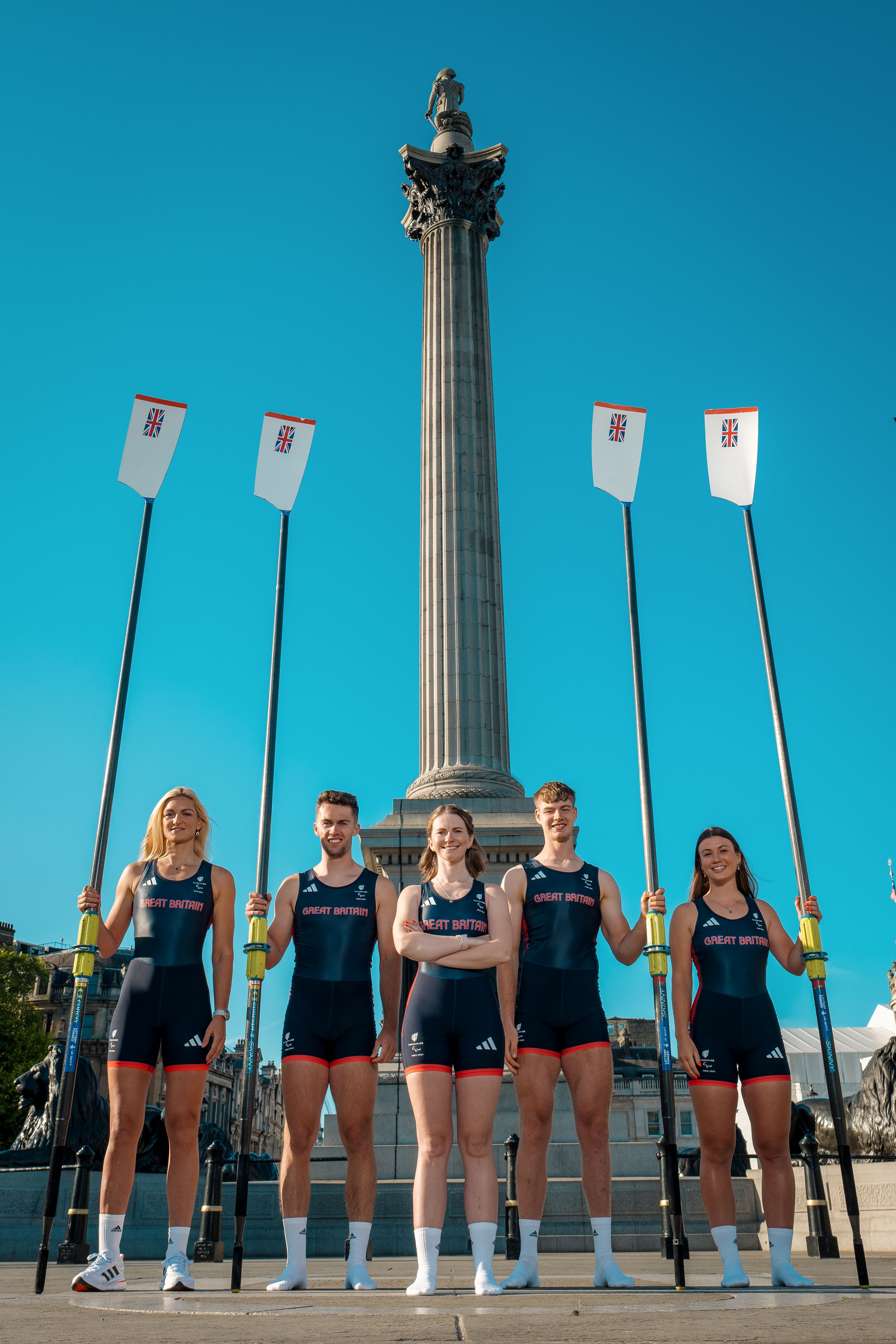
Erin grew up in Wantage, a small town about 40 minutes away from Oxford. Such close proximity to the city led her initially to apply for a History degree at Cambridge – but fortunately for Pembroke, she was rejected (“Thank goodness!”). During her gap year, it became clear she couldn’t leave English behind at A Level, and out of the two universities, only Oxford offered her the option to combine those disciplines.
“I really only went to Pembroke on the Open Day,” she tells us. “I went in and just thought, yeah, I like this one! And so I didn’t go anywhere else. It was billed as ‘the friendly college’, it had the right number of people, and I met the tutors on the Open Day” – Stephen Tuck and Lynda Mugglestone, both of whom still teach at Pembroke – “and I just really liked it!”
“But I thought I might not get in, so I didn’t want to get too attached,” she adds. Obviously this caution was unnecessary.
During her very first week, Giles Henderson, then Master of Pembroke, gave a speech welcoming the newest Pembrokians to Oxford. “He said – you can dabble in everything but you can do two things well, and unfortunately one of those is going to have to be your degree,” Erin recalls. At the time, she had thought that second spot might be taken by choir, as she had been heavily involved in musical theatre at school and had just been accepted into the University acapella group, the Oxford Belles. But that same week, persuaded by the understanding that everyone tries rowing at Oxford, Erin headed to the boathouse for a taster session. “They asked me if I’d thought about coxing,” she says. “I jumped straight in on the taster day, and that was the start of my career basically – in Freshers’ Week!”
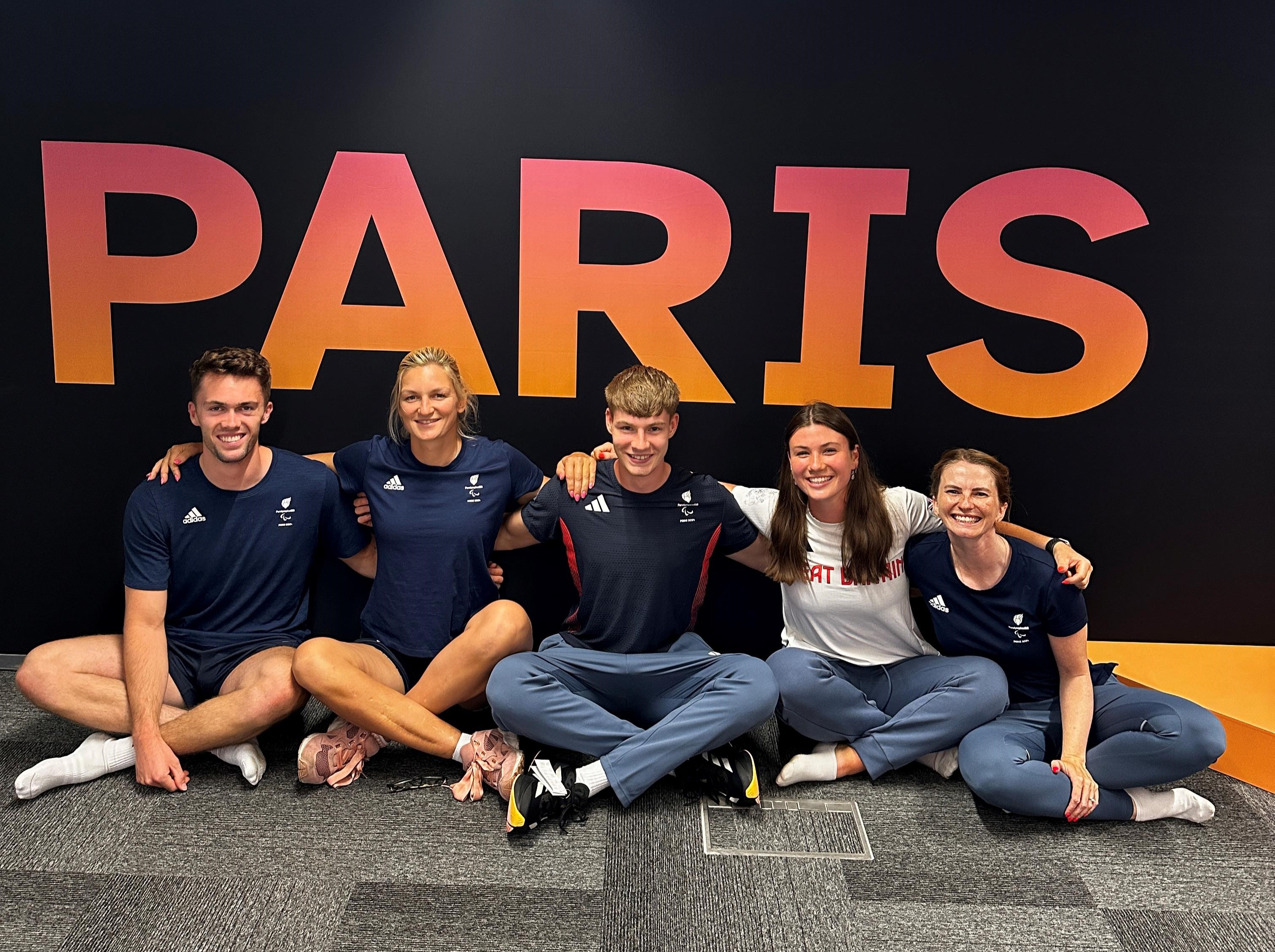
Beginning in the women’s second boat, Erin quickly progressed to coxing the first boat and trialling for the University team in her second year. “No one really dabbles in rowing,” she laughs. “It’s quite addictive once you’re in it.” It seems that in this sport her love for musical theatre, far from being left behind, had found a new – if unusual – channel. “I think the musical theatre and drama really helped me,” she says. “There’s a performance element to coxing – all those things you learn in drama, like tone, pitch and volume, actually help!”
Other elements of the sport equally appealed to Erin, who fondly recalls the cross-generational aspect of College rowing. “Most of my mates in my year didn’t really row, but I met quite a diverse range of people at College through rowing,” she explains. This included post-graduates, a section of the College community with whom her undergraduate friends didn’t cross paths in the same way. “We went to birthday dinners, events in the MCR – there aren’t many clubs where you’re as involved across every year at College level.”
But there were parts of her experience with College rowing that weren’t quite as idyllic. “I have a terrible record with Eights and Bumps,” Erin laughs. “I’ve lost three headships and never won one!”
Evidently, this did not hinder Erin’s career, although it was not exactly a career she had intended to go into upon graduation. She had a place at Pembroke for a Masters course in Archaeology, but unfortunately didn’t have any funding. “It would have been a stretch financially,” Erin says, before adding with a laugh, “and also academically, probably.”
So with another year to spare, and a job lined up at a major consulting firm, she had moved back home to Wantage in the meantime. “I joined a rowing club just for the social aspect, really,” she says. “I really missed that structure and social life.” The club Erin joined happened to be Leander Club, one of the most prestigious rowing clubs in the country, which frequently sends members to the GB Rowing team. “It was the closest, best club, so just a happy accident!”
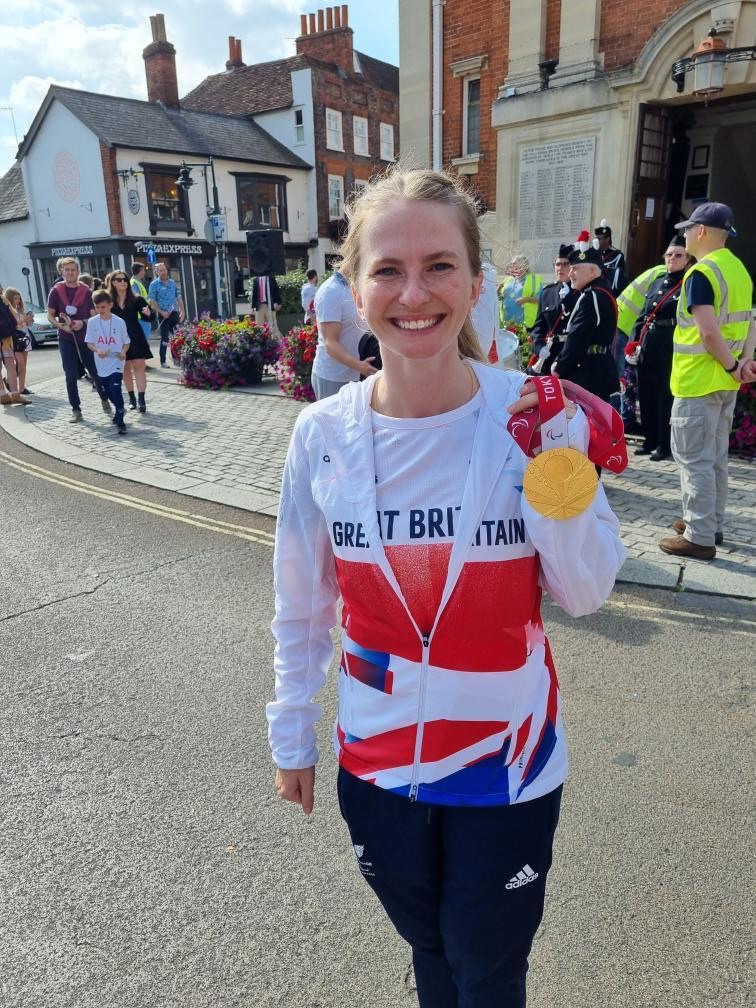
Training six days a week, Erin fell straight back in love with coxing and decided to pursue it for another year. In her second year, she started getting attention from the GB Rowing Development Team. “I was the spare for the 2016 Paralympics in Rio, and then got invited to trial for the team after 2016.”
The first year that she was on the team Erin joined the Olympic programme, but since 2017 she’s been coxing the Paralympic team, explaining that Paralympic coxes don’t need an impairment to qualify. In August 2021, she competed in the postponed 2020 Paralympic Games in Tokyo, and won her first Paralympic medal – gold, of course.
Preparation for Paris has not been smooth sailing for Erin, however. In May 2022, she was diagnosed with breast cancer, and underwent fifteen rounds of chemotherapy, before having a double mastectomy in January 2023. “After chemo, I just knew I had to get back in the boat as soon as possible,” she shares. “Last year was a bit of a blur – I had to work really, really hard to get back to normal. This season feels the most like a normal season for me.”
To qualify for the Paralympics, your boat must finish in the top six at the World Championships. No easy feat, but one Erin’s boat entirely defeated, coming first overall. For the rest of this season, they’ve remained unbeaten, winning the European Championships in May and the World Cup in Poland in June.
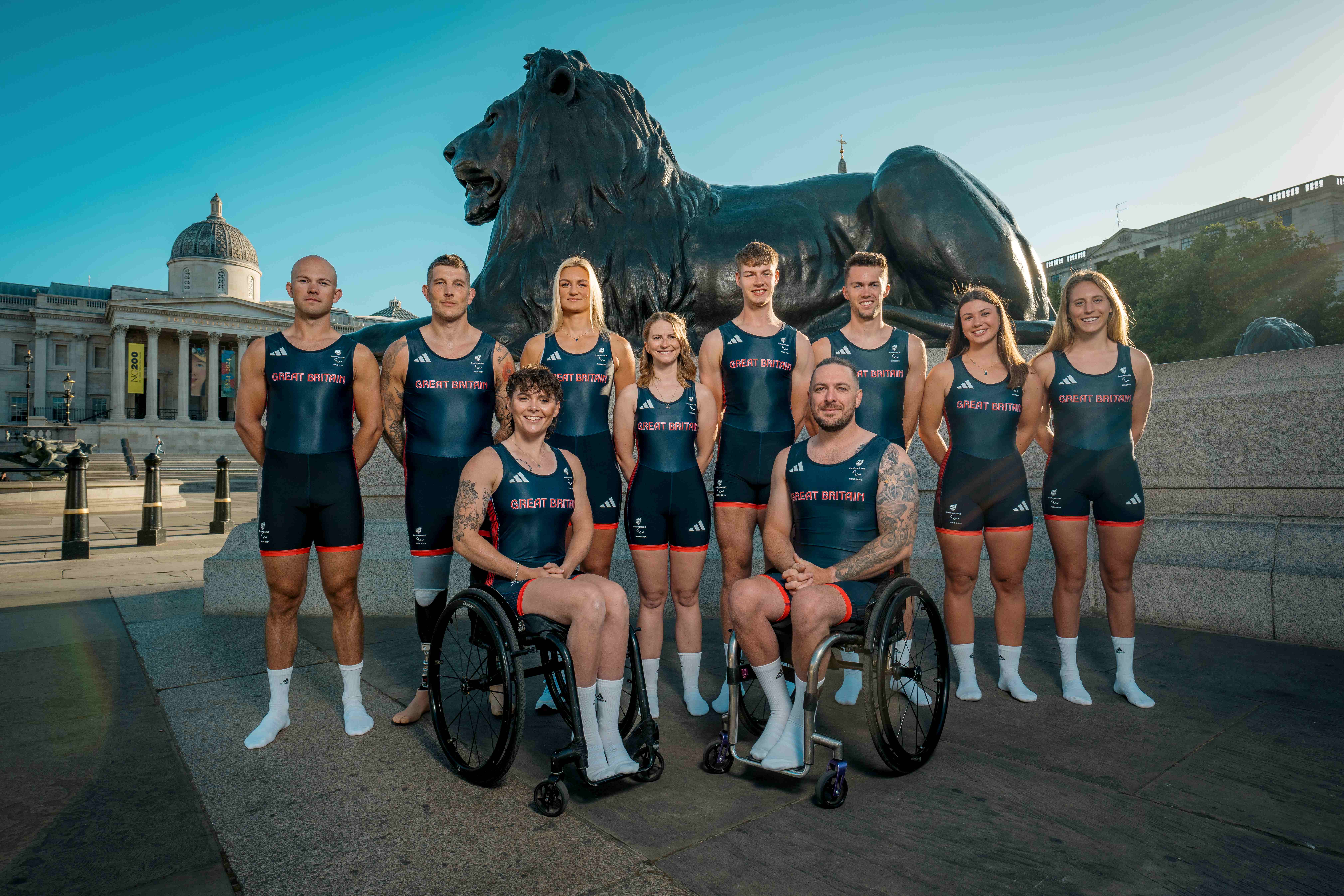
The discipline required to prepare for the Paralympics, Erin tells us, is something she developed at Oxford. Throughout our conversation it is clear she looks back on her time at Pembroke fondly, although she admits her first year was a “shock to the system”.
“It taught me a lot, though,” she adds. “It was just the expectation of simply how much I had to read when I got here. But I still read loads, and I can churn through books – Oxford taught me to absorb and smash through them!”
An unusual aspect of the English course is the opportunity to study Old English, an almost unrecognisable predecessor to the language we speak today. It was part of the course that Erin really enjoyed, despite not expecting to. “It’s not as well-trodden,” she explains. She loved it so much that she ended up taking Course II, a selection of modules which covers more Old English literature beyond the mandatory module in first year. She adds that she was also studying British History, 300-1087, at the same time as Old English, which allowed lots of interdisciplinary overlap, and as a result she was able to write an essay about the Old English poem The Dream of the Rood for a History exam question on what monuments can teach us about history.
“When I reflect on my time at Pembroke,” Erin shares, “I think about how lucky I was. The group of friends I made in first year are a really diverse bunch in terms of what they’re doing now – I don’t understand half of it but it’s really interesting! Everyone worked really hard, and there’s a real range of what that looks like.
“I’m still friends with people from school,” she adds, “but the place where I really found my people was probably at Pembroke.”
Erin’s own career, as she prepares to participate in the most prestigious sporting competition in the world, is nothing short of a childhood dream for many. But ironically, it wasn’t for her. “I’d not dreamed of the Olympics when I was a kid,” she says. “I think my hobby has just sort of become my job, and I think that’s the dream, really.”
Erin will be coxing the PR3 Mixed Coxed Four for Team GB. You can watch her races at the following times:
Heats: 30th August, 11:10am
Repechages: 31st August, 10:50am
Finals: 1st September, 11:30am

